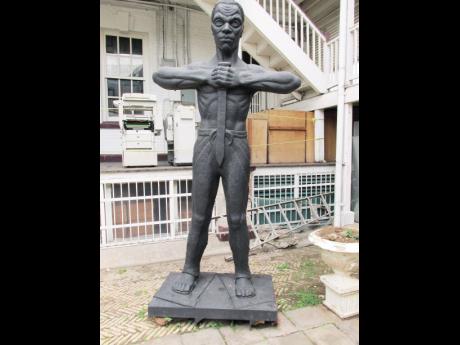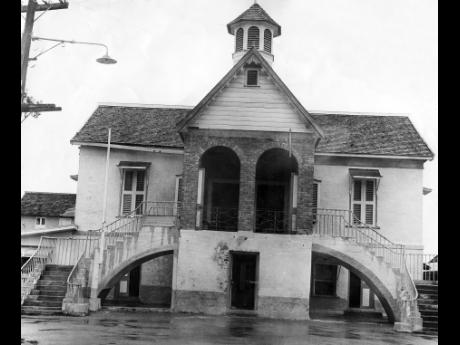150 years of painful memories - Jamaica marks anniversary of Morant Bay Uprising
Jamaicans are today marking the 150th anniversary of the Morant Bay Uprising, one of the defining events in the country's history.
To commemorate this special anniversary, the St Thomas Parish Development Committee is collaborating with the Ministry of Youth and Culture to host a series of events.
Last night, there was a vigil at the Paul Bogle Memorial Park in Stony Gut, while the 'Paul Bogle and the Martyrs March' from Stony Gut to Morant Bay is scheduled to take place this morning.
The march, which will follow the route used by Bogle and others 150 years ago, will end at the Morant Bay old courthouse square, where a civic ceremony will be held.
"It is important that we honour the memories of these martyrs who paid the ultimate price, making way for us to enjoy certain privileges today," said Culture Minister Lisa Hanna.
"It is only fitting to remember October 11, 1865 as the time when free blacks decided it was better to fight for justice and a better life for their children, even if they did not live to benefit directly from it. The uprising was a significant moment in the history of St Thomas, Jamaica and the Caribbean," added Hanna.
Among the highlights of the civic ceremony will be the reading of more than 400 names of martyrs by students from the parish and a wreath-laying exercise.
University lecturer Dr Clinton Hutton is expected place the 150 years in perspective during a presentation.
Other events scheduled to commemorate the 150th anniversary of the uprising include a re-enactment of the trial of Governor Eyre on Sunday, October 25 in Morant Bay, while the African Caribbean Institute of Jamaica, a division of the Institute of Jamaica, will host a symposium called 'War Dung a Monkland!: The Morant Bay Rebellion and its Aftermath' on October 29.
The 11th annual Paul Bogle and Martyrs Lecture is also on October 29 while a 150th awards banquet and dinner officially closes the year of activities on November 28.
OPPORTUNITY TO REFLECT
According to Hanna, all the events in observance of the Morant Bay Uprising provide an opportunity for Jamaicans to reflect on the bravery and acts of selflessness of our ancestors who changed the history of Jamaica and are the foremothers and forefathers of the Jamaica we know today.
The Morant Bay Uprising came out of the post-Emancipation period, which was characterised by great socio-economic hardship, especially for the former slaves.
Nothing was done to alleviate poverty and injustice, and things came to a head on Saturday, October 7, 1865 when Deacon Paul Bogle, a black, well-to-do and influential landowner and entrepreneur of Stony Gut/Spring Garden, and his followers, armed with bludgeons and accompanied by music, attended the trial of a black man who was arrested because he trespassed on a long-abandoned estate.
Another peasant from Stony Gut was arrested because he spoke out in court against the unjust arrest. Bogle and the others attempted to rescue the man, and a melee broke out.
The man was rescued and the police severely beaten, after which Bogle and the others retreated to Stony Gut.
On Wednesday, October 11, Bogle and the others returned to Morant Bay, where the vestry was meeting in the courthouse and all hell broke loose.
The fracas lasted for some six hours during which the courthouse and the adjoining schoolhouse were burnt down, and the custos and others killed.
The governor responded by sending troops to Stony Gut, where more than 400 peasants were killed, and the village razed.
Eventually, George William Gordon, an associate of Bogle, was taken from Kingston to Morant Bay, and hanged on October 23. Bogle was later captured and hanged as "a rebel and devil incarnate".


